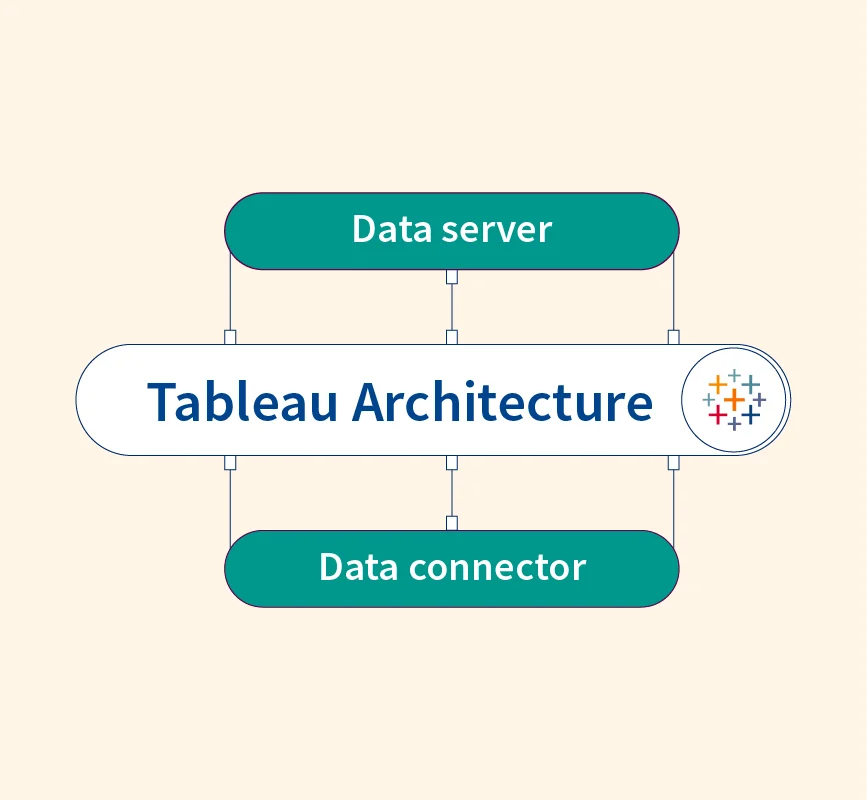Artificial Intelligence (AI) is rapidly becoming a part of our daily lives, transforming how we work, communicate, and interact with technology. From voice assistants in smartphones to personalized recommendations on streaming platforms, AI’s presence is everywhere, touching nearly every industry. According to recent studies, the global AI market is expected to grow from $93.5 billion in 2021 to a staggering $997.77 billion by 2028, showcasing its exponential adoption and impact across the globe.
This technological advancement holds immense potential to improve various areas of our world, from healthcare and education to business operations and environmental sustainability. With AI-driven tools analyzing vast datasets and uncovering valuable insights, industries can innovate faster and operate more efficiently than ever before. As AI continues to evolve, understanding its significance and benefits is crucial, especially for those new to the field who want to learn why this technology is indispensable for the future.
What is Artificial Intelligence?
Artificial Intelligence, or AI, refers to the development of computer systems capable of performing tasks that typically require human intelligence. Unlike the common perception of AI as human-like robots, AI primarily focuses on creating software and algorithms that enable machines to learn from data, recognize patterns, make decisions, and even predict outcomes with remarkable accuracy.
At its core, AI involves three main components:
- Algorithms: These are step-by-step instructions that allow machines to learn and perform tasks. Traditional programming relies on fixed, rule-based logic, but AI algorithms adapt by learning from data, making them more flexible and scalable.
- Data: AI systems need vast amounts of data to learn from past examples and improve their predictions or actions. Unlike conventional approaches that are often limited by human analytical capacity, AI processes massive datasets in minutes, revealing insights that manual analysis might miss.
- Computational Power: Processing complex data requires high-speed computing power, allowing AI systems to quickly analyze and make sense of large datasets. This capability significantly reduces the time it takes to achieve results, such as diagnosing medical conditions faster than traditional methods.
These elements come together to form AI systems that enhance productivity, decision-making, and innovation across multiple fields. For instance, in healthcare, AI-driven diagnostic tools can quickly analyze medical images, making diagnoses faster and potentially more accurate than manual examination. This efficiency can lead to earlier treatments and better patient outcomes, highlighting AI’s transformative potential compared to traditional methods.
Why Does AI Matter?
AI holds significant importance because it helps us tackle complex challenges and drives innovation across various fields. In areas like healthcare, finance, and science, AI enables the processing of vast amounts of data to reveal insights that would be difficult, if not impossible, for humans to uncover alone. For instance, AI can analyze medical data to assist in diagnosing diseases earlier and with greater accuracy, or it can forecast financial trends by identifying patterns in large datasets.
AI’s ability to rapidly process information and uncover hidden trends provides value in several ways:
- Addressing Complex Problems: AI-driven insights help tackle major challenges in areas like climate change, medical research, and resource management, offering innovative solutions that can have a significant impact.
- Driving Efficiency: AI can automate repetitive and time-consuming tasks, allowing human workers to focus on creative and strategic areas, ultimately boosting productivity.
- Enhancing Decision-Making: By analyzing large datasets, AI enables organizations to make data-driven decisions, which leads to more accurate and effective outcomes.
- Improving Personalization: AI can analyze individual preferences and behaviors to deliver personalized experiences, such as tailored recommendations in online shopping or entertainment.
- Accelerating Innovation: AI helps businesses and researchers experiment faster, leading to breakthroughs in fields like drug discovery, energy optimization, and robotics.
- Optimizing Resources: In sectors like logistics and energy, AI can improve resource allocation, reducing waste and increasing sustainability.
- Enhancing Safety: AI systems are used to predict equipment failures, detect fraud, and monitor security threats, helping prevent accidents and ensuring safer environments.
These benefits demonstrate the versatile power of AI, making it a vital tool for advancing various industries and improving our daily lives.
The Benefits of AI
AI brings transformative advantages across industries, enhancing productivity, accuracy, and overall customer satisfaction. Here’s a closer look at the key benefits AI offers:
- Empowered Employees: AI takes over repetitive and mundane tasks, freeing up human employees to focus on strategic, innovative, and creative work. This shift not only improves job satisfaction but also increases overall productivity by allowing employees to contribute to high-impact areas.
- End-to-End Operational Efficiency: AI enables the automation and optimization of complex processes, improving workflow efficiency across the board. For example, AI-driven logistics can streamline supply chains by predicting demand, optimizing routes, and managing inventory levels, reducing costs and improving service delivery.
- Enhanced Accuracy and Decision-Making: AI’s ability to analyze massive datasets helps organizations make well-informed, data-backed decisions. In fields like healthcare, finance, and manufacturing, AI reduces human error and enhances precision by identifying subtle patterns and trends, which human analysis may overlook.
- 24/7 Customer Support and Personalization: AI-powered chatbots and virtual assistants offer round-the-clock customer service, responding instantly to inquiries and providing tailored assistance. By learning from each interaction, AI systems can personalize experiences, which enhances customer satisfaction and loyalty.
- Intelligent Product Development and Market Insights: AI helps businesses analyze consumer behavior, identify emerging trends, and anticipate market changes. These insights allow companies to design products and services that better meet customer needs, providing a competitive edge and fostering innovation.
- Increased Safety and Security: AI is widely used to detect anomalies and predict risks, which can enhance security and safety in industries like finance (fraud detection), cybersecurity (threat analysis), and industrial manufacturing (predictive maintenance to prevent equipment failures).
- Environmental and Resource Management: AI can optimize resource allocation in industries like agriculture, energy, and water management. By analyzing environmental data, AI helps improve sustainability practices, such as reducing water usage, conserving energy, and minimizing waste.
How Artificial Intelligence Is Being Used
AI is transforming multiple industries through practical applications that enhance efficiency, accuracy, and innovation. Here are some real-world examples of how AI is used in various sectors:
- Healthcare: AI assists in diagnosing diseases, analyzing medical images, predicting patient outcomes, and even discovering new drugs. AI-powered tools help doctors identify health issues early, making treatments more effective and personalized.
- Automotive Industry: Self-driving cars, powered by AI, use sensors, cameras, and machine learning algorithms to navigate roads and avoid obstacles. AI’s role in autonomous vehicles aims to improve road safety and reduce human errors in driving.
- Finance: AI is widely used for fraud detection, risk assessment, and financial forecasting. Machine learning algorithms analyze transaction patterns to detect anomalies, enabling banks to prevent fraudulent activities in real time.
- Retail and E-commerce: AI-powered recommendation engines provide personalized shopping experiences by analyzing user behavior and preferences. These recommendations increase customer satisfaction and boost sales.
- Manufacturing: AI-driven predictive maintenance systems analyze machinery data to detect potential failures before they occur, reducing downtime and extending the lifespan of equipment.
- Customer Service: AI chatbots and virtual assistants provide efficient, round-the-clock support, handling common inquiries and improving customer satisfaction by delivering quick responses.
- Education: AI tailors learning experiences to individual students, identifying their strengths and weaknesses and adapting educational content to match their needs. This personalized approach helps improve learning outcomes.
The Future of AI
The future of AI holds exciting possibilities, with continued advancements promising to reshape numerous aspects of our lives. Here are some potential applications and impacts of AI in the future:
- Personalized Education: AI could create highly customized learning plans tailored to each student’s pace and learning style. By identifying strengths and weaknesses, AI could make education more engaging and effective.
- Smarter Cities: AI can play a crucial role in developing “smart cities” by optimizing traffic flow, reducing energy consumption, and enhancing public safety. For example, AI-driven traffic management systems could help alleviate congestion in urban areas.
- Healthcare Innovations: Future AI applications in healthcare could include advanced diagnostics, personalized medicine, and predictive analytics that anticipate health issues before they arise, leading to earlier intervention and improved patient care.
- Enhanced Environmental Conservation: AI-powered systems could analyze environmental data to monitor biodiversity, predict natural disasters, and optimize resource use, aiding in conservation efforts and supporting sustainable development.
- AI-Powered Creative Tools: AI is already making strides in art, music, and writing. Future AI systems could collaborate with humans to create art, music, and literature, sparking new forms of creativity and innovation.
- Advanced AI Research (Explainable AI): Ongoing research in “explainable AI” aims to make AI decisions more transparent and understandable. This research will be essential as AI becomes more involved in critical sectors like healthcare, finance, and law, where transparency is crucial.
The future of AI is promising, with endless opportunities to improve lives, drive innovation, and solve pressing global challenges. However, with these advancements come responsibilities, particularly in ensuring AI’s ethical use.
AI Ethics
As AI technology advances, ethical considerations become increasingly important. Ensuring responsible AI development and deployment is essential to address potential challenges and safeguard public trust. Here are some key ethical concerns surrounding AI:
- Bias and Fairness: AI systems can inadvertently inherit biases present in the data they are trained on. If not addressed, these biases can lead to unfair treatment in areas like hiring, lending, and law enforcement. It’s crucial to ensure data diversity and develop algorithms that mitigate bias.
- Privacy Concerns: AI often relies on large amounts of data, which can raise privacy issues. Personal data used in AI systems must be protected, with clear regulations to prevent misuse and safeguard individual privacy rights.
- Job Displacement: As AI automates more tasks, certain jobs may be at risk, leading to economic disruption and potential job loss. Addressing this challenge requires a focus on re-skilling workers and creating new job opportunities that align with an AI-driven economy.
- Transparency and Accountability: Many AI systems operate as “black boxes,” where it’s challenging to understand how they reach certain decisions. Ensuring AI transparency is essential, especially in critical sectors like healthcare and finance, to allow users to trust and verify AI’s decision-making processes.
- Security Risks: AI can be vulnerable to cyber-attacks, where malicious actors could manipulate systems to behave in unintended ways. Strengthening AI security measures is essential to prevent risks associated with AI misuse or attacks.
Addressing these ethical challenges is vital to building a future where AI serves humanity responsibly. By developing ethical frameworks and promoting transparency, we can foster trust and ensure AI’s positive impact.
The Final Question is – Why do we need artificial intelligence?
In summary, AI is vital for addressing modern challenges, enhancing efficiency, and boosting human capabilities across various sectors. Here’s why AI is indispensable today:
- Solving Complex Problems: AI empowers us to analyze vast amounts of data and discover patterns, making it possible to tackle critical issues in fields like healthcare, climate change, and resource management that were previously insurmountable.
- Improving Efficiency: By automating repetitive and mundane tasks, AI enables industries to operate with greater speed and precision. This increases productivity and allows human workers to focus on creative, high-impact work.
- Enhancing Decision-Making: AI’s data-driven insights support better decision-making by identifying trends and patterns that would be difficult for humans to detect. In sectors like finance and business, AI is crucial for making informed, strategic decisions.
- Innovating and Personalizing Experiences: AI allows for the development of personalized services and intelligent product recommendations. From customized learning plans in education to tailored shopping experiences in e-commerce, AI enhances user satisfaction and engagement.
- Augmenting Human Abilities, Not Replacing Them: AI is a tool that complements human intelligence, helping us achieve breakthroughs that were previously beyond our reach. Rather than replacing human roles, AI works alongside us, creating opportunities for collaboration and advancement.
As AI continues to evolve, it will undoubtedly shape the future in ways we cannot yet fully imagine. However, as we embrace AI, it’s essential to prioritize ethical development and responsible deployment, ensuring AI’s contributions lead to a better, more inclusive future.
Conclusion
Artificial Intelligence is more than just a technological advancement; it’s a powerful tool that holds the potential to reshape our world for the better. From enhancing healthcare and boosting business efficiency to creating personalized user experiences, AI has already demonstrated its impact across multiple fields. As AI continues to evolve, its ability to address complex challenges, drive innovation, and augment human capabilities will only grow. By embracing AI responsibly, we can look forward to a future where technology supports a smarter, more efficient, and inclusive world.


